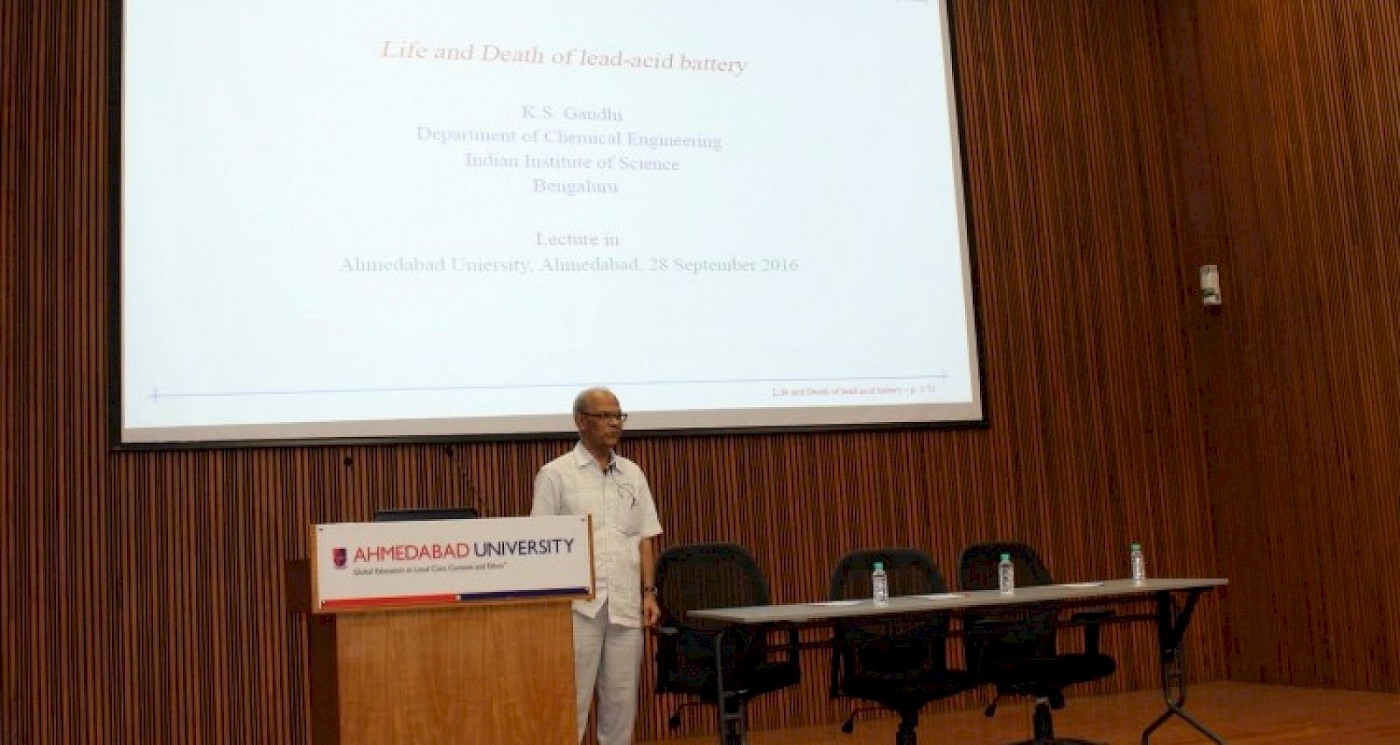Life and Death of Lead-acid Battery

Professor K. S. Gandhi delivered a lecture on Life and Death of Lead-acid Battery. Rechargeable batteries are devices for the storage of electrical energy. They find applications in the utilization of intermittent renewable energy sources and for meeting the energy demands of users who are either mobile or live in remote areas. Batteries store electrical energy in the form of chemical energy. Rechargeable batteries supply electrical energy at the expense of chemical energy through direct conversion and can be reverted nearly to their original state by charging them with electrical energy. Chemical reactions occurring in a battery produce electrical energy by conversion of neutral species into ionic species and vice versa. There are three general features common to all batteries: (i) the battery voltage drops with time when a battery is discharged at constant current, and precipitously so towards the end of discharge, (ii) through energy stored in a battery is constant, increasingly smaller fractions can be recovered with increasing discharge current, (iii) a battery cannot be recharged fully, even at the expense of energy excess of that withdrawn, beyond a finite number of cycles of discharge and charging, i.e., it has a finite life. Professor Gandhi's used mathematical modelling for describing these features, especially in case of the lead-acid battery. The reaction between sulfuric acid with lead dioxide and lead producing lead sulfate is the basis of energy conversion in a lead-acid battery. Professor Gandhi showed that by introducing the increase in resistance to electronic conduction due to the production of lead sulfate, and the dependence of area of lead sulfate particles on nucleation phenomena, the features described in items (i) and (ii) can be quantitatively explained. Finite life of a battery depends on many causes and on usage pattern as well.
Professor K. S. Gandhi received his Master degree from the Ohio State University in 1965, and his doctorate from the University of California at Berkeley in 1971. He has taught Chemical Engineering at IIT Kanpur and IISc, Bangalore. His industrial experience includes work at J.K. Paper Mills, Rayagada and at Pilkington Brothers Research Centre in the U.K. His research interest is in the area of Modeling of Multiphase Systems. Models of Nylon 6 polymerization reactors, breakage of viscous and viscoelastic drops in stirred vessels, sonochemical reactors, and formation of nanoparticles have been developed by his group. Modelling of electrochemical power sources is his current area of work. He is a member of the Indian Institute of Chemical Engineers, and a Fellow of the Indian Academy of Sciences, as well as the Indian National Academy of Engineering. He is a member of Indian Institute of Chemical Engineers and has delivered guest lectures in their annual meetings including the C. K. Murthy memorial lecture in Chemcon 1997, and H. L. Roy memorial lecture in Chemcon 2010. He has received Godrej lifetime achievement award of IIChE in 2011.



